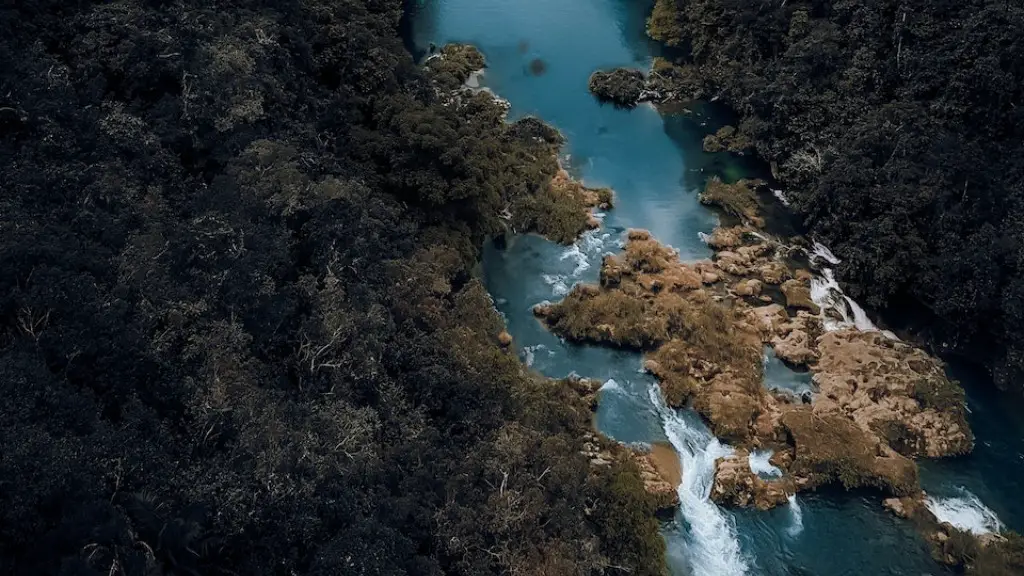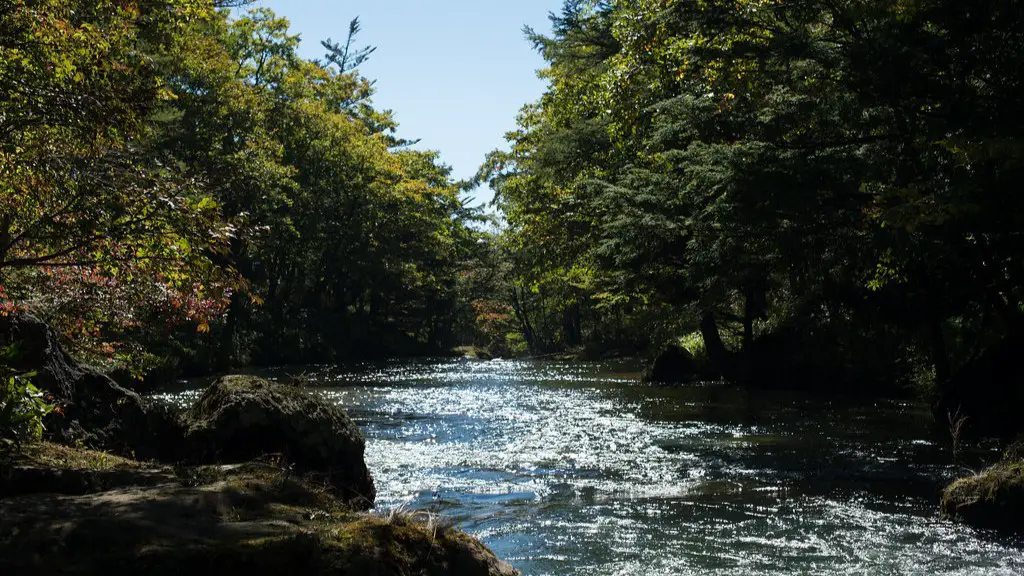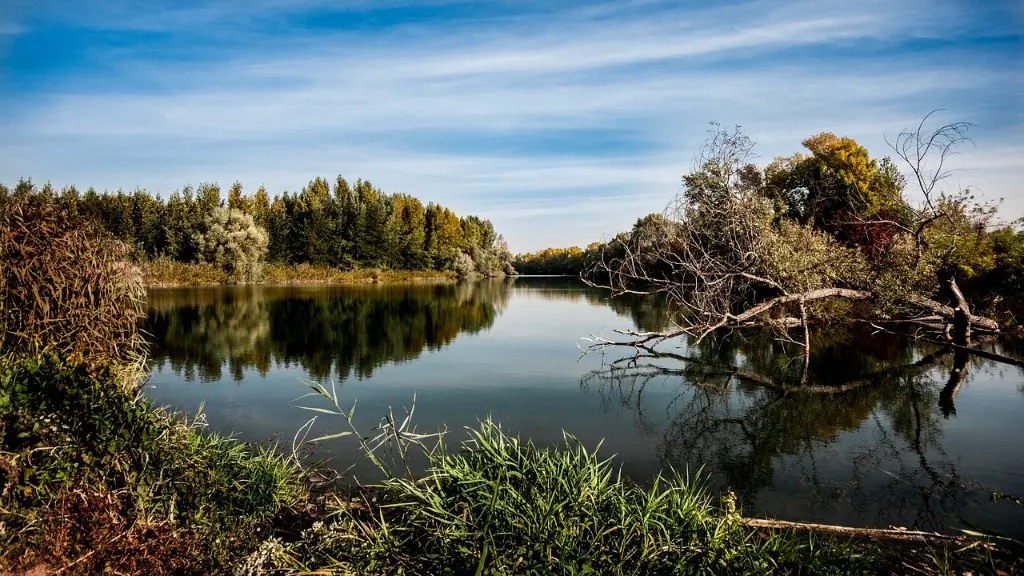Farming
The Mississippi River is one of the great engines of domestic manufacturing and agricultural production. Its importance to farming can be traced back to the time of Native Americans, when it provided a source of sustenance for the droves of fish, deer, and game present in the vicinity. Alongside the collection of resources, this body of water also served as a key passageway for travel and commerce.
Today, the Mississippi River still serves as a major contributor to farming. The fertile soil surrounding the river makes it an optimal area for growing grains, vegetables, and other crops. The river is also a reliable source of irrigation for farmers located away from the body of water. In addition, the Mississippi River provides farmers with the opportunity to obtain low-cost fertilizer and water.
The presence of the Mississippi River also enables farmers to play an important role in the region’s food system. This is due to its long history of providing food staples to customers in areas that are miles away. Additionally, the Mississippi River helps farmers create an industry of trading and circulating supplies throughout the region and the world.
Trade
Though the Mississippi River continues to be an important resource for farming, it also serves as a bridge for trade activities. The location of this body of water makes it an ideal spot for trade between the Midwest and the Gulf Coast. The river provides an easy and efficient way to transport goods such as fuel and other resources.
In addition, the Mississippi River helps support the local businesses of many towns and local cities. It encourages the exchange of goods and services within the region and between other countries abroad. The river also serves as an efficient port for ships, minimizing the transportation costs and environmental impact of international trades.
The Mississippi River is a critical factor in the logistics and the delivery of goods throughout the country. For example, it allows companies to take advantage of its low cost of shipping and reduced production costs to compete in overseas markets. Furthermore, the river transports manufactured goods from the Midwest to the Gulf Coast, taking advantage of its vast inland waterways.
Environmental Impact
The Mississippi River is an invaluable natural resource for the flora and fauna of the region. Without the protection of the river, many of the wonderful species that live there would not be able to survive.
The river serves as an important resource for farmers, providing sustenance to both vegetation and livestock. In addition, the river helps sustain the fish and bird populations in the area. The rich water source also contributes to managing flooding by controlling the release of water in stormy weather.
Furthermore, the river is also home to diverse species of fish, mussels, and turtles. The presence of these animals contributes to the balance of the local environment. In addition, they help reduce sediment buildup, pollution, and the risk of algal blooms.
Economic Impact
The presence of the Mississippi River has enabled a significant rise in the economic activity in the region. This is largely due to the development of the ports and tourism that are directly related to the river.
The numerous small towns in the area benefit greatly from the influx of tourists and businesses that flock to the region. These businesses provide jobs, leading to a massive reduction in the unemployment rate.
Additionally, the river serves an important role in the transport of goods and materials to the regions around it. This includes products from refineries, coke plants, and oil and gas terminals, all of which benefit the local economies.
Cultural Impact
The Mississippi River holds a special place in the hearts of the people who live along its shores. It is often considered to be a part of the local culture and identity, with many towns and cities having their own unique relationship to the river.
The presence of the river provides a sense of history, tradition, and community in the area. Many of the towns located near the river have festivals, gathering, and celebrations that are held during the summer months, allowing the residents to come together and socialize.
Furthermore, the river is tied to the traditional way of life for many of the people in the region. The fishermen and traders use the river as a source of sustenance, trading and making a living off of the fish and other resources in it.
Environmental Education
The importance of the Mississippi River goes beyond its economic and cultural significance. As a natural resource, it provides educational opportunities to students, teachers, and researchers. Through research and education, the region can gain a better understanding of the importance of its natural resources which are vital to its prosperity.
The Mississippi River provides an opportunity to learn about the environment, its ecosystems, and the interconnectedness of everything in it. Teachers can take students on field trips or even lecture them on the history, significance, and societal impacts of the river. Researchers can use the river to study environmental pollution, changes in water quality, and native species.
Benefits for Next Generation
The Mississippi River, with its various benefits, is an essential part of the future of the region. Its continued presence in the area will ensure that future generations have access to a vital resource for learning and economic opportunity.
The river provides a way for young entrepreneurs to take advantage of the business opportunities in the area and to connect with the global community. The river is also an integral part of the regional food system, allowing for the distribution of locally-produced food to communities around the world.
At the same time, the Mississippi River is a source of spiritual and recreational activity for locals and tourists alike. It serves as an aesthetic backdrop for many activities, such as fishing, boating, and swimming, and is home to a variety of wildlife making it a valuable place to visit and explore.
Conclusion
The Mississippi River is one of the great jewels of the natural and economic landscape of the Midwest. It serves as an important source of sustenance for farmers, a bridge for trade activities, a source of ecological preservation, an educational tool for researchers, and a spiritual and recreational hub for locals and visitors. With these benefits in mind, it is obvious why the Mississippi River is such a valuable asset to the people in the region and why it should continue to be protected and cherished in the future.


